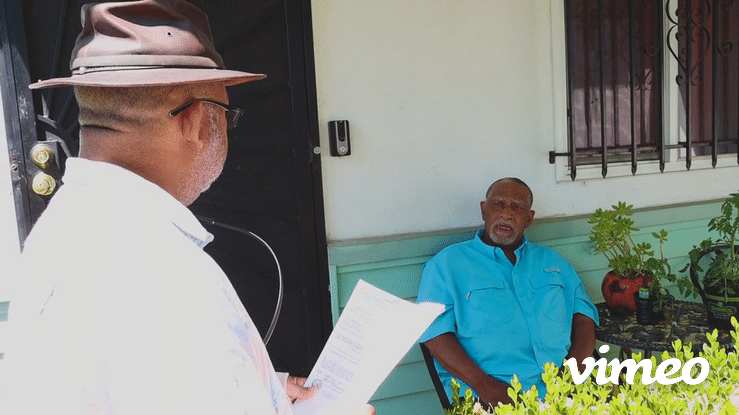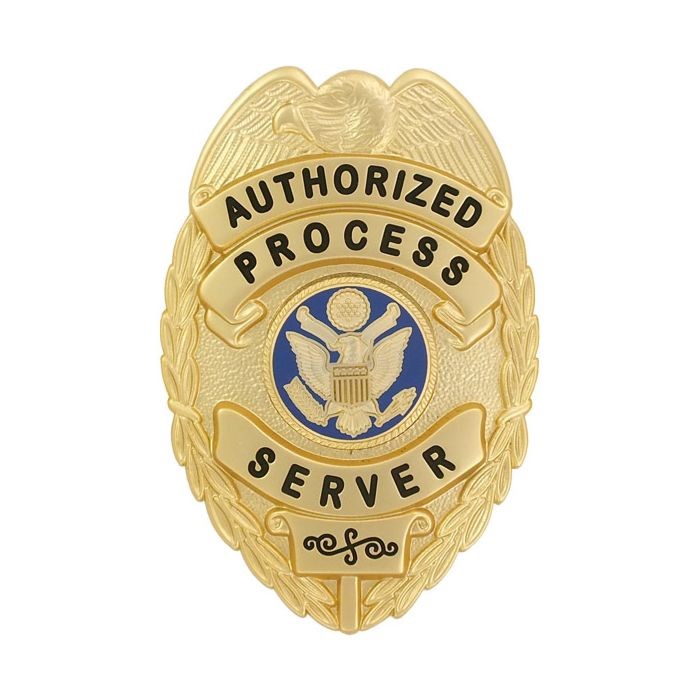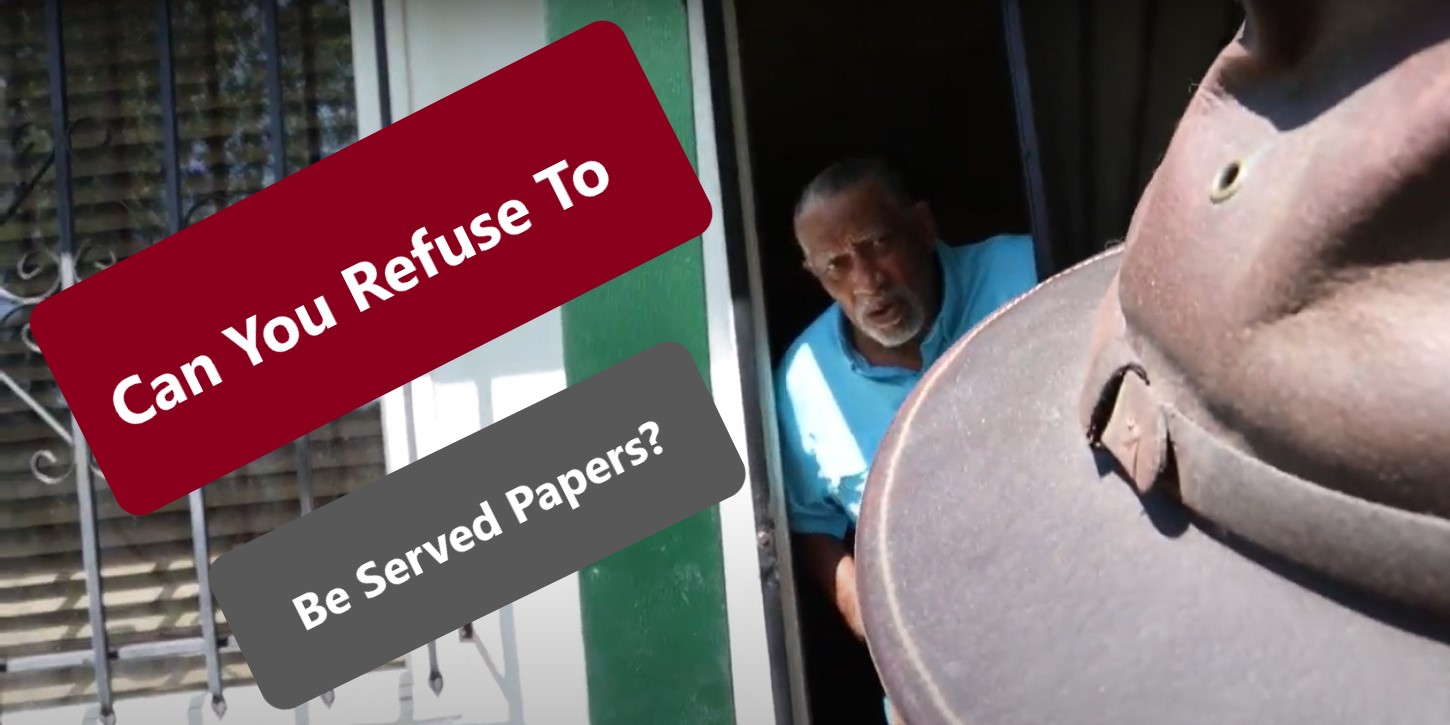To become a process server in California, there are a few steps that need to be taken. A process server is a person who delivers legal documents to individuals who are involved in a court case. The documents can include subpoenas, summons, and complaints. The role of a process server is crucial in ensuring that all parties involved in a legal case have been notified and given the opportunity to participate in the legal proceedings.

In California, becoming a process server does not require a license, but there are certain steps that need to be taken. The first step is to visit the county clerk’s office and obtain a registration form. The registration form needs to be completed and submitted along with a $2,000 bond. The bond is required to ensure that the process server will follow all rules and regulations related to the job. Additionally, the process server needs to be at least 18 years old, a legal resident of California, and have a valid government-issued ID.
Understanding the Role of a Process Server

Definition and Duties
A process server is a professional who is responsible for delivering legal documents, such as summons and subpoenas, to individuals who are required to appear in court. The process server’s role is to ensure that the legal documents are delivered in a timely and efficient manner, and that the recipient understands the importance of the documents.
The duties of a process server include locating the individual who needs to receive the legal documents, delivering the documents to the individual, and providing proof of service to the court. The process server must also ensure that the legal documents are delivered in accordance with the legal requirements of the state.
Importance in the Legal System
Process servers play a critical role in the legal system. They ensure that legal documents are delivered to the appropriate individuals in a timely and efficient manner, which is essential for ensuring that the legal system operates effectively.
Without process servers, the legal system would be unable to function properly. Legal documents would not be delivered in a timely manner, which could result in delays and complications in court proceedings.
Service of Process
Service of process is the act of delivering legal documents to individuals who are required to appear in court. This is a critical step in the legal process, as it ensures that individuals are aware of their legal obligations and can prepare for court proceedings.
The process server is responsible for ensuring that the legal documents are delivered to the appropriate individual, and that the individual understands the importance of the documents. The process server must also provide proof of service to the court, which is essential for ensuring that the legal process proceeds smoothly.
In conclusion, process servers play a vital role in the legal system. They are responsible for ensuring that legal documents are delivered in a timely and efficient manner, and that individuals are aware of their legal obligations. Without process servers, the legal system would be unable to function effectively.
Basic Requirements for Becoming a Process Server in California

To become a process server in California, there are certain basic requirements that must be met. These requirements include age, residency, and criminal history. In this section, we will discuss these requirements in detail.
Age and Residency
To become a process server in California, an individual must be at least 18 years old and a resident of the state of California. This means that the applicant must have a valid California driver’s license or identification card, and must have lived in California for at least one year immediately preceding filing.
No Felony Convictions
Another basic requirement for becoming a process server in California is having no felony convictions. If an individual has been convicted of a felony, they may still be able to become a process server if they have obtained a certificate of rehabilitation, a pardon, or an expungement.
It is important to note that having a criminal history does not necessarily disqualify an individual from becoming a process server. However, it is up to the discretion of the county clerk whether or not to grant registration to an applicant with a criminal history.
Overall, becoming a process server in California requires meeting certain basic requirements, including being at least 18 years old, a resident of the state of California, and having no felony convictions. By meeting these requirements, an individual can take the necessary steps to become a registered process server in California, including completing any required training courses and paying the applicable filing fees.
The Registration Process

Becoming a process server in California requires registration with the county clerk of the county where the process server resides or has their primary place of business. This section will cover the steps involved in the registration process, including county clerk registration, fingerprinting and background checks, and bond and insurance requirements.
County Clerk Registration
To register as a process server in California, the first step is to obtain a process server’s registration form from the county clerk/recorder’s office. The form must be completed, but not signed until the process server is in the presence of the clerk. The registration fee varies by county and should be confirmed with the local county clerk’s office. The registration is valid for two years.
Fingerprinting and Background Checks
California law requires that all process servers undergo a fingerprinting and background check. The process server must schedule an appointment with a Livescan fingerprinting service provider approved by the California Department of Justice (DOJ) and the Federal Bureau of Investigation (FBI). The Livescan service provider will electronically transmit the fingerprints to the DOJ and FBI for background checks. The process server is responsible for the cost of the Livescan service and any fees associated with the background checks.
Bond and Insurance Requirements
Process servers in California are required to have a $2,000 process server bond. The bond must be obtained from a bonding company and should cover the term of the registration. The process server should specify a particular start date as the day they plan to register at the county clerk’s office. The bond can range from $49 to $175, depending on the bonding company. The process server should contact the Process Server Institute for a bond application to send to a bonding company.
In addition to the bond, process servers are required to have an errors and omissions policy from an insurance or surety company. The policy must be in the amount of $100,000 per occurrence and $300,000 aggregate. The policy should be obtained from an insurance or surety company licensed to do business in California.
Overall, the registration process for becoming a process server in California involves completing a registration form, undergoing a fingerprinting and background check, and obtaining a bond and insurance policy. It is important to follow all state and federal laws and regulations when becoming a process server.
Educational and Training Requirements

Becoming a process server in California requires a thorough understanding of the state’s laws and regulations. In addition to completing the necessary registration paperwork, aspiring process servers must also meet certain educational and training requirements.
Understanding California Laws
Process servers in California are subject to a variety of laws and regulations, including the California Business and Professions Code and the Rules of Civil Procedure. It is important for process servers to have a thorough understanding of these laws in order to perform their duties in a legal and ethical manner.
One of the best ways to gain a comprehensive understanding of California process serving laws is to attend a training program or seminar. These programs are typically offered by professional organizations such as CALSPro (California Association of Legal Support Professionals) and the Process Server Institute. They cover topics such as the legal requirements for serving process, the proper methods for serving process, and the ethical considerations involved in process serving.
Several organizations in California offer training programs and seminars for aspiring process servers. These programs provide a comprehensive overview of the laws and regulations governing process serving in California, as well as practical training on how to serve process in a professional and effective manner.
One such organization is the Process Server Institute, which offers a series of entrepreneurial seminars throughout California that teach the fundamentals of process serving, the laws that govern service, and the business of process serving. Another organization is CALSPro, which offers a comprehensive training program that covers all aspects of process serving, from legal requirements to practical techniques.
In addition to attending training programs and seminars, aspiring process servers can also gain valuable experience by working as a process server’s assistant or by shadowing an experienced process server. This hands-on experience can help aspiring process servers develop the skills and knowledge they need to succeed in this challenging and rewarding profession.
Completing the Registration Form

To become a process server in California, an individual must complete and submit a registration form. The registration form can be obtained from the County Clerk/Recorder’s Office in the county where the individual resides or has their principal place of business.
Required Information and Documentation
The registration form requires the individual to provide their personal information, including their name, address, and contact information. Additionally, the individual must provide proof of their identity, such as a valid, government-issued photo identification like a driver’s license or passport.
Along with the registration form and proof of identity, the individual must also provide a $2,000 process server bond from a bonding company. The bond should cover the term of the registration, which is two years. The bond application can be obtained from the Process Server Institute.
Submitting the Form and Fees
After completing the registration form and obtaining the necessary documentation, the individual must submit the form and fees to the County Clerk/Recorder’s Office. The filing fee for the registration form is $185, and the recording fee is $5.
Once the form and fees are submitted, the individual must wait for approval from the County Clerk/Recorder’s Office. If approved, the individual will receive a certificate of registration, which allows them to act as a process server in California.
It is important to note that the individual must also provide proof of service for each process they serve. Proof of service can be in the form of a declaration of service or a proof of service form. The proof of service must be filed with the court in which the process was served.
In San Diego, the registration process is the same as in other counties in California. The individual must obtain the registration form from the San Diego County Clerk/Recorder’s Office, provide the necessary documentation, and submit the form and fees for approval.
Overall, completing the registration form is an essential step in becoming a process server in California. By providing the required information and documentation and submitting the form and fees, the individual can obtain their certificate of registration and begin serving processes.
Operational Considerations for Process Servers

Becoming a process server in California is just the beginning of a long and challenging journey. Process servers are required to maintain a high level of professionalism and integrity while carrying out their duties. In this section, we will discuss some operational considerations that process servers should take into account.
Independent Contractor vs. Employment
Process servers can work as independent contractors or employees of a process serving agency. As an independent contractor, a process server has the freedom to choose their own clients and set their own rates. However, they are also responsible for their own taxes, insurance, and other expenses. On the other hand, working as an employee of a process serving agency provides a steady income and benefits, but the process server may have less control over their work.
Building a Network and Reputation
Building a network of contacts is crucial for process servers. They can establish relationships with attorneys, law enforcement agencies, and other professionals in the legal field. Process servers should also work on building a strong reputation by providing quality service and maintaining a high level of professionalism. This can lead to repeat business and referrals, which are essential for success in this field.
Marketing is essential for process servers to attract new clients. Process servers can use various marketing techniques such as social media, email marketing, and search engine optimization to reach potential clients. They can also attend legal conferences and seminars to network with other professionals in the legal field.
Process servers can also work with businesses, private investigators, and serve managers to acquire new clients. By building relationships with these entities, process servers can gain access to a steady stream of clients.
In conclusion, becoming a process server in California requires more than just completing the registration process. Process servers must consider various operational factors, such as their employment status, reputation, and marketing strategies to succeed in this field.
Legal and Ethical Responsibilities

Becoming a process server in California comes with legal and ethical responsibilities that must be taken seriously. Process servers are required to adhere to state and federal laws, as well as the California Rules of Civil Procedure. Failure to do so can result in legal consequences.
Process servers must follow both state and federal laws when serving legal documents. This includes the proper handling and delivery of legal documents to the intended recipient. Failure to adhere to these laws can result in the dismissal of a case or even criminal charges.
California state law requires that process servers be registered with the county in which they reside or have their primary place of business. They must also obtain a $2,000 process server bond from a bonding company, which covers the two-year term of their registration. Additionally, process servers must complete all necessary training courses and pay the applicable filing fees, which range between $40 and $50 depending on county regulations.
Handling Sensitive Information
Process servers are often privy to sensitive information, such as the location and personal details of the intended recipient. As such, they must handle this information with the utmost discretion and confidentiality. They must also ensure that the documents they serve are accurate and complete, and that they are delivered to the intended recipient in a timely manner.
Process servers must also be aware of any complaints or regulations related to their work. They must maintain a clean criminal history and avoid any conflicts of interest that may compromise their ability to serve legal documents in an unbiased and professional manner.
In summary, becoming a process server in California requires a thorough understanding of legal and ethical responsibilities. Process servers must adhere to state and federal laws, handle sensitive information with discretion and confidentiality, and maintain a clean criminal history. By doing so, they can provide a valuable service to the legal community while upholding the integrity of the legal system.
Renewal and Continuing Education

Becoming a process server in California requires ongoing education and renewal of registration. Here are the steps to renew your registration and continue your education.
Renewing Your Registration
Process servers in California must renew their registration every two years. To renew your registration, you will need to submit a new registration form, along with the renewal fee, to the County Clerk/Recorder’s Office in your county. It is important to renew your registration on time to avoid any lapse in your ability to serve legal documents.
Ongoing Training and Development
As a process server, it is important to stay up-to-date with the latest laws and regulations governing the service of legal documents. To ensure ongoing training and development, the California Association of Legal Support Professionals (CALSPro) offers a variety of educational seminars and workshops.
CALSPro’s Continuing Education Committee administers an examination to qualify members, their employees, and independent contractors as certified process servers. The CCPS Workshop covers topics such as tools of the trade, what makes a good report, and complex issues related to process serving.
In addition to CALSPro, the Process Server Institute (PSI) offers a series of entrepreneurial seminars throughout California that teach the fundamentals of process serving, the laws that govern service of process, and completing proof of service.
Continuing education and certification can help process servers stand out in a competitive field and provide better service to their clients. It is recommended that process servers take advantage of these opportunities to stay informed and improve their skills.
Advanced Process Serving Skills

As a process server, it is important to have advanced skills that can help you handle difficult serves and locate hard-to-find individuals. Here are some important skills that can help you become a successful process server in California.
Handling Difficult Serves
Handling difficult serves is an important skill for process servers in California. This can include serving individuals who are hostile or uncooperative, or who are trying to avoid being served. In these situations, it is important to remain calm and professional, and to use creative tactics to get the job done.
One effective approach is to use deception or misdirection to get the individual to come to the door. For example, you may pretend to be a delivery person or a repair technician, or you may leave a fake note or package that requires a signature.
Another approach is to use surveillance or stakeout techniques to monitor the individual’s movements and catch them at a time when they are more likely to be home. This can involve using binoculars or other equipment to observe the individual’s activities from a distance.
Skip Tracing and Investigative Techniques
Skip tracing and investigative techniques are also important skills for process servers in California. Skip tracing involves using a variety of tools and techniques to locate individuals who have moved or are otherwise difficult to find.
This can include using public records databases, social media, and other online resources to track down the individual’s current address and contact information. It may also involve conducting interviews with family members, friends, or neighbors to gather additional information about the individual’s whereabouts.
Investigative techniques can also be useful in locating individuals who are trying to avoid being served. This can include conducting surveillance, using GPS tracking devices, or even hiring a licensed private investigator to assist with the search.
Overall, having advanced process serving skills can help you become a successful process server in California. By mastering these skills, you can handle difficult serves with confidence and locate hard-to-find individuals with ease.
Technology and Process Serving

Technology has transformed the process serving industry in recent years. Process servers in California can now take advantage of various software tools and digital technologies to improve their efficiency and effectiveness in serving legal documents.
Software Tools for Process Servers
One of the most significant technological advancements in the process serving industry is the availability of software tools that can help process servers manage their workload. One such tool is ServeManager, a cloud-based software that streamlines the process serving process from start to finish. With ServeManager, process servers can manage their cases, track their progress, and generate reports all in one place. The software also enables process servers to communicate with clients, upload and share documents, and receive payments electronically.
Other software tools that process servers can use include Process Server Pro, Case Anywhere, and ServeNow. These tools provide similar features and functionalities as ServeManager, and process servers can choose the one that suits their needs and preferences.
E-Service and Digital Transformation
Another significant technological advancement in the process serving industry is e-service, which allows legal documents to be served electronically. E-service has become increasingly popular in California, and many courts now require process servers to serve legal documents electronically.
Process servers can use various digital platforms to serve legal documents electronically, such as email, fax, and electronic filing systems. E-service has many benefits, including faster delivery of legal documents, reduced costs, and increased efficiency.
Digital transformation has also led to the development of online platforms that connect process servers with clients. These platforms, such as ServeNow and Process Server Network, enable clients to find and hire process servers online, and process servers to expand their client base and increase their revenue.
In conclusion, technology has transformed the process serving industry in California, enabling process servers to improve their efficiency and effectiveness in serving legal documents. Process servers can take advantage of various software tools and digital platforms to manage their workload, serve legal documents electronically, and expand their client base.
Frequently Asked Questions

What are the requirements to become a registered process server in California?
To become a registered process server in California, an individual must be at least 18 years old and have no felony convictions. They must also complete a registration form and pay a registration fee to the County Clerk in the county where they reside or have their principal place of business. Additionally, they must obtain a $2,000 process server bond from a bonding company.
What is the process for obtaining a process server license in California?
The process for obtaining a process server license in California involves completing a registration form, obtaining a process server bond, and completing any required training courses. Once these requirements are met, the individual must submit their registration form and bond to the County Clerk in the county where they reside or have their principal place of business.
What training is necessary to become a certified process server in California?
There is no specific training required to become a certified process server in California. However, it is recommended that individuals complete a process server training course to gain a better understanding of the legal requirements and procedures involved in serving legal documents.
How much can a process server in California expect to earn?
The amount a process server can earn in California varies depending on factors such as location, experience, and the number of cases they handle. On average, process servers in California earn between $30,000 and $50,000 per year.
What are the legal limitations for process servers in California regarding property access?
Process servers in California are not allowed to enter private property without the owner’s permission. However, they may enter common areas of apartment buildings or gated communities to serve legal documents.
How many attempts must a process server make to serve documents in California?
In California, process servers must make at least three attempts to serve legal documents before they can consider the service unsuccessful. These attempts must be made at different times of day and on different days of the week to increase the likelihood of successful service.
























